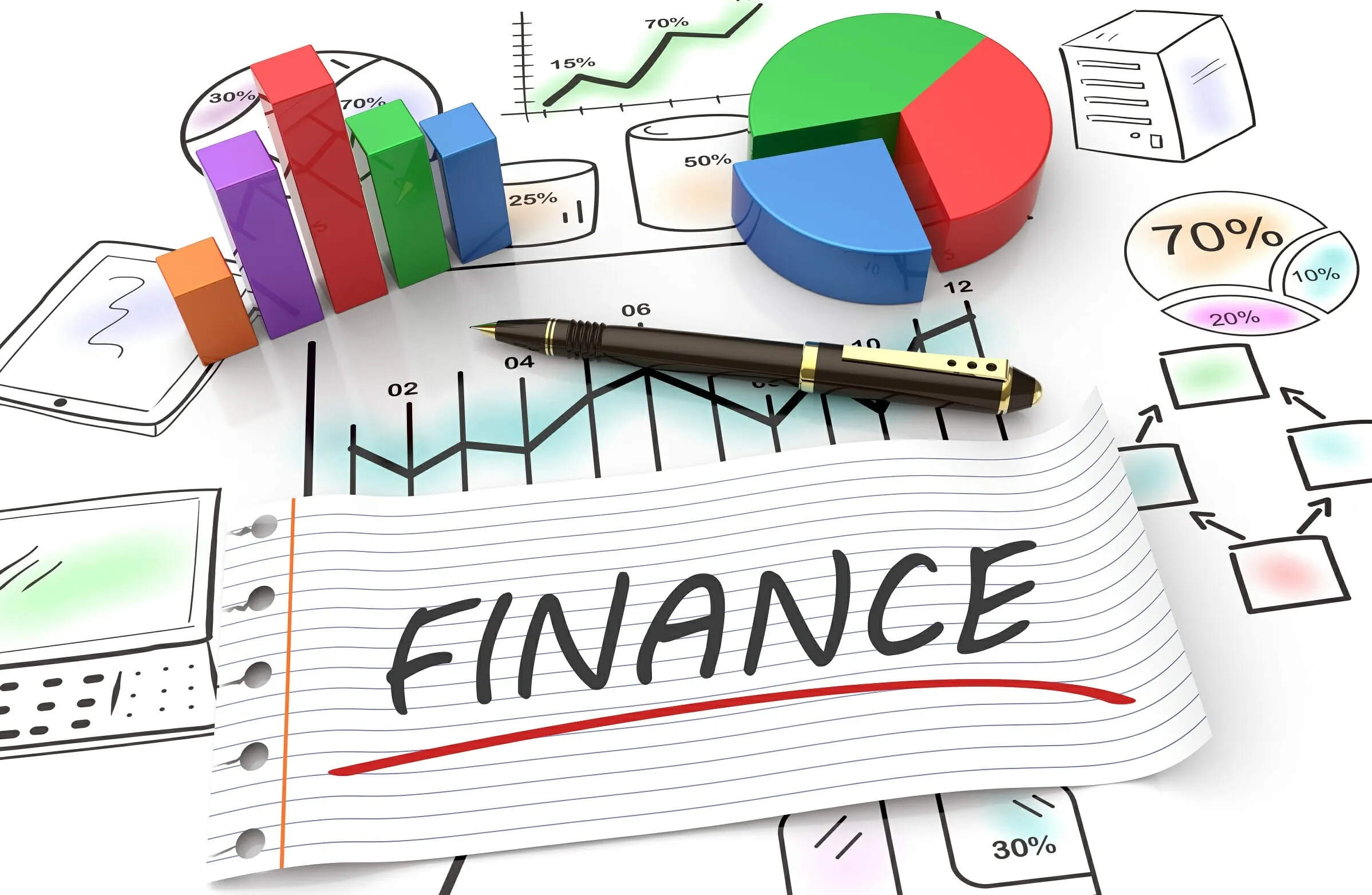Achieving financial independence is a goal for many, and saving money is a key part of that journey. It’s not just about putting aside cash; it’s about making smart decisions that lead to a secure future. This article will guide you through essential saving strategies that can help you reach your financial goals and enjoy a comfortable life without constantly worrying about money.
Key Takeaways
- Set clear financial goals to guide your saving efforts.
- Create a monthly budget to track your spending and saving.
- Pay off high-interest debts like credit cards as soon as possible.
- Establish an emergency fund to handle unexpected expenses.
- Consider investing to grow your savings over time.
Understanding the Importance of Saving
The Role of Savings in Financial Health
Saving money is crucial for your overall financial well-being. Having savings can protect you from unexpected expenses like medical bills or urgent home repairs. It acts as a safety net, ensuring you can handle surprises without going into debt.
Long-Term Benefits of Saving
When you save, you’re not just putting money away for a rainy day. You’re also building a foundation for your future. Here are some long-term benefits of saving:
- Financial security: Savings provide peace of mind.
- Investment opportunities: More savings mean more chances to invest.
- Retirement readiness: Saving now helps you enjoy a comfortable retirement later.
Common Misconceptions About Saving
Many people think saving is only for the wealthy or that it requires a lot of money. This isn’t true! Here are some common myths:
- You need to save a lot to start: Even small amounts add up over time.
- Saving is boring: It can be exciting to watch your money grow!
- You can’t save if you have debt: You can save while paying off debt; just start small.
Saving is a journey, not a race. Start today, and your future self will thank you!
In summary, understanding the importance of saving is the first step toward achieving financial independence. It helps you prepare for emergencies, invest in your future, and enjoy a secure life.
Creating a Realistic Budget
Creating a budget is a key step toward achieving financial independence. A budget helps you understand where your money goes and allows you to plan for the future. Here’s how to create a budget that works for you:
Tracking Your Expenses
Start by keeping track of your spending for a month. Write down everything you buy, from groceries to entertainment. This will help you see your spending habits clearly.
Setting Financial Goals
Next, think about what you want to achieve financially. Do you want to save for a car, a house, or a vacation? Write down your goals and how much money you need to save for each.
Adjusting Your Budget Over Time
Your budget isn’t set in stone. As your income or expenses change, adjust your budget accordingly. This will help you stay on track and meet your financial goals.
Here’s a simple way to divide your income using the 50/30/20 rule:
| Category | Percentage | Examples |
|---|---|---|
| Needs | 50% | Rent, utilities, groceries |
| Wants | 30% | Dining out, entertainment |
| Savings & Debt | 20% | Emergency fund, debt payments |
Remember, budgeting is a skill that improves with practice. Don’t get discouraged if you make mistakes at first. Keep refining your budget until it works for you!
Building an Emergency Fund
Why You Need an Emergency Fund
An emergency fund is crucial for financial stability. It acts as a safety net during unexpected situations like job loss or urgent repairs. Having this fund can prevent you from going into debt.
How Much to Save for Emergencies
Most experts suggest saving enough to cover 3-6 months of essential expenses. Here’s a simple breakdown:
| Expense Type | Monthly Cost | Total for 3 Months | Total for 6 Months |
|---|---|---|---|
| Rent/Mortgage | $1,200 | $3,600 | $7,200 |
| Utilities | $300 | $900 | $1,800 |
| Groceries | $400 | $1,200 | $2,400 |
| Transportation | $200 | $600 | $1,200 |
| Insurance | $150 | $450 | $900 |
| Total | $7,800 | $15,600 |
Best Places to Keep Your Emergency Fund
When choosing where to keep your emergency fund, consider:
- High-yield savings accounts for better interest rates.
- Money market accounts for easy access.
- Certificates of deposit (CDs) for slightly higher returns, but with limited access.
An emergency fund is not just a savings account; it’s your financial cushion against life’s surprises.
To build your emergency fund, follow these steps:
- Decide how much to save.
- Choose a method to reach your savings target.
- Select a safe place to keep your fund.
- Open your account.
- Know when to use it.
Investing for the Future
Different Types of Investments
Investing is about putting your money into things that can grow in value over time. Here are some common types of investments:
- Stocks: Shares of a company that can increase in value.
- Bonds: Loans to companies or governments that pay interest.
- Mutual Funds: A mix of stocks and bonds managed by professionals.
- Certificates of Deposit (CDs): Savings accounts with higher interest rates for a fixed term.
Risk Management in Investing
Investing wisely is crucial. To manage risk, consider these strategies:
- Diversify: Spread your money across different types of investments.
- Invest for Your Goals: Match your investments to your time frame. Short-term goals need safer investments, while long-term goals can handle more risk.
- Regularly Review: Check your investments often to make sure they align with your goals.
The Power of Compound Interest
Compound interest is when you earn interest on your interest. This can significantly grow your money over time. For example:
| Year | Investment | Interest Earned | Total Value |
|---|---|---|---|
| 1 | $1,000 | $50 | $1,050 |
| 2 | $1,050 | $52.50 | $1,102.50 |
| 3 | $1,102.50 | $55.13 | $1,157.63 |
Investing early can lead to greater wealth in the future. Start now to take advantage of compound interest!
By understanding these concepts, you can make informed decisions that help you achieve financial independence.
Reducing Debt Strategically
Understanding Different Types of Debt
Debt can come in many forms, such as credit card debt, student loans, and mortgages. Knowing the type of debt you have is crucial because it helps you create a plan to tackle it effectively. Here’s a quick overview:
| Type of Debt | Description | Interest Rate |
|---|---|---|
| Credit Card Debt | High-interest revolving credit | 15% – 25% |
| Student Loans | Loans for education, often lower rates | 3% – 7% |
| Mortgages | Loans for buying a home | 3% – 5% |
Strategies for Paying Off Debt
There are several methods to pay off debt. Here are two popular strategies:
- Debt Snowball Method: Focus on paying off the smallest debts first to build momentum. This method claims that building momentum—like a snowball rolling downhill—is key to getting out of debt quickly.
- Debt Avalanche Method: Pay off debts with the highest interest rates first to save money in the long run.
Balancing Saving and Debt Repayment
It’s important to find a balance between saving money and paying off debt. Here are some tips:
- Set a budget: Allocate a portion of your income to savings and debt repayment.
- Emergency fund: Even while paying off debt, try to save a small amount for emergencies.
- Review regularly: Check your progress every month to adjust your plan as needed.
Remember, reducing debt is a journey. Stay focused and patient, and you will see progress over time!
Maximizing Income Potential

Exploring Side Hustles
Finding ways to earn extra money can be a game changer. Side hustles allow you to use your skills or hobbies to make additional income. Here are some popular options:
- Freelancing (writing, graphic design, etc.)
- Selling handmade crafts or products online
- Tutoring or teaching a skill
- Driving for rideshare services
Negotiating Salary Increases
Don’t be afraid to ask for a raise! Many people miss out on higher pay simply because they don’t ask. Here are steps to negotiate effectively:
- Research your market value.
- Prepare your case with achievements.
- Practice your pitch.
- Schedule a meeting with your boss.
Investing in Education and Skills Development
Investing in yourself can lead to better job opportunities and higher pay. Consider:
- Taking online courses to learn new skills.
- Attending workshops or seminars.
- Getting certifications in your field.
Investing in your education is one of the best ways to increase your income potential. It opens doors to new opportunities and can lead to financial independence in retirement.
Utilizing Tax-Advantaged Accounts

Benefits of Retirement Accounts
Tax-advantaged accounts are special savings tools that help you save money for the future while reducing your tax bill. These accounts can significantly boost your savings. Here are some common types:
- 401(k): Offered by employers, allowing you to save for retirement with pre-tax dollars.
- IRA (Individual Retirement Account): A personal account that can also provide tax benefits.
- Roth IRA: You pay taxes on the money before you deposit it, but your withdrawals in retirement are tax-free.
Health Savings Accounts
Health Savings Accounts (HSAs) are another great option. They offer a triple tax advantage: you can put money in before taxes, it grows tax-free, and you can withdraw it tax-free for medical expenses. This makes HSAs a smart choice for managing healthcare costs while saving for the future.
Education Savings Plans
Education Savings Plans, like 529 plans, help families save for college. These plans allow your money to grow tax-free, and withdrawals for qualified education expenses are also tax-free. This can make a big difference in how much you save for your child’s education.
Summary Table of Tax-Advantaged Accounts
| Account Type | Tax Benefits | Best For |
|---|---|---|
| 401(k) | Pre-tax contributions | Retirement savings |
| IRA | Tax-deferred growth | Retirement savings |
| Roth IRA | Tax-free withdrawals in retirement | Retirement savings |
| HSA | Triple tax advantage | Medical expenses |
| 529 Plan | Tax-free growth for education | College savings |
Utilizing tax-advantaged accounts is a smart way to save money and prepare for the future. They can help you reach your financial goals faster!
Maintaining Financial Discipline
Avoiding Impulse Purchases
To maintain financial discipline, it’s crucial to avoid impulse purchases. These are often unplanned buys that can derail your budget. Here are some tips to help:
- Wait 24 hours before making a purchase.
- Make a shopping list and stick to it.
- Unsubscribe from promotional emails that tempt you to buy.
Sticking to Your Financial Plan
Sticking to your financial plan is essential for achieving your goals. Here’s how to do it:
- Review your plan regularly to ensure it aligns with your goals.
- Set reminders for important financial tasks, like bill payments.
- Celebrate small wins to keep yourself motivated.
Regularly Reviewing Your Financial Goals
Regularly reviewing your financial goals helps you stay on track. Consider these steps:
- Set specific goals (e.g., saving for a vacation).
- Track your progress monthly.
- Adjust your goals as needed based on your financial situation.
Maintaining discipline in your finances is not just about restrictions; it’s about making smart choices that lead to a better life.
By focusing on these strategies, you can build a strong foundation for your financial future. Remember, you don’t need a budget to manage your money effectively; instead, develop habits that support your financial health.
Conclusion
In summary, achieving financial independence is a journey that requires careful planning and smart choices. By setting clear goals, sticking to a budget, and saving automatically, you can build a solid foundation for your future. Remember to pay off credit cards in full to avoid high interest and create an emergency fund to handle unexpected expenses. Investing wisely can also help your money grow over time. Most importantly, take care of your health and well-being, as they are crucial to maintaining your financial stability. With these strategies in place, you can work towards a life where you are not dependent on a paycheck and can enjoy the freedom that comes with financial security.
Frequently Asked Questions
What does financial independence mean?
Financial independence means having enough money saved or invested so you can live comfortably without needing a job. It’s about being able to pay your bills and enjoy life without worrying about money.
Why is saving important?
Saving is important because it helps you prepare for emergencies, reach your goals, and build a future where you don’t have to worry about money.
How can I create a budget?
To create a budget, list your income and all your expenses. Make sure your expenses are less than your income. This way, you can save money every month.
What is an emergency fund?
An emergency fund is money set aside for unexpected expenses, like car repairs or medical bills. It’s usually recommended to save enough to cover three to six months of living costs.
What types of investments should I consider?
You can consider various investments like stocks, bonds, or mutual funds. These can help your money grow over time, but remember that all investments come with risks.
How can I reduce my debt?
To reduce debt, start by making a list of what you owe. Then, create a plan to pay off the debts with the highest interest rates first. Also, try to spend less and save more.




